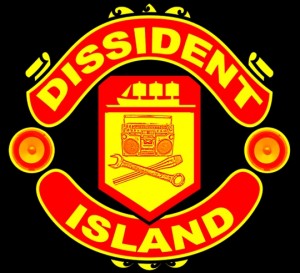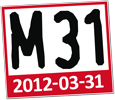 On February 17th, two activists from the “…umsGanze!”-Alliance visited the DIY radio station “Dissident Island Radio” in London to talk about the ongoing mobilization for M31 – european day of action against capitalism.
On February 17th, two activists from the “…umsGanze!”-Alliance visited the DIY radio station “Dissident Island Radio” in London to talk about the ongoing mobilization for M31 – european day of action against capitalism.
After introducing themselves and their local group in Cologne, the activists talked about the motivation behind acting beyond national boundaries and the genesis of the European action day against capitalism and the crisis. At the core M31 will be the first coordinated, big attempt to react to the crisis from a radical, emancipatory point of view.
They were asked about the specific role of Germany and the European Central Bank (ECB), which both is mentioned in the call for M31. The activists described Germany’s central role in the history and the present struggle of the Euro-Zone, concerning its interests in having a strong, European economic block to be able to compete on a high level in the global market. Besides they pointed out, that the austerity measures against mostly precarious people in the European states bear similarities to the German model to become a powerful economic player for the last 10-20 years. After all, Berlin and Paris mainly push the actual anti-crisis measures forward.
Furthermore, the members of “…umsGanze!” emphasized the special status of the ECB. The ECB is not a usual, common bank, but the central monetary institution of Europe. Because of that, it is one part of the “Troika” (ECB, EU, IMF) – which executes the agreements of the austerity-measures and the cuts – and therefore it is seen rather as a political institution than a bank.
The activists were asked about the members of the project M31. They summed up the groups and participations as coming from the radical left or the anarchist space; anarcho-syndicalist unions, Antifa-groups as well socialrevolutionary organizations are part of the M31-network.
Finally Dissident Island asked for the reaction and the feedback towards M31. The activists replied, that this differs a lot concerning the concrete situation of the different countries. The M31-groups in Greece for an example have a far wider public to reach, because the crisis is much more present and crucial there. In Germany, which in fact is not harmed by the crisis so badly, the situation of social movements is much more marginalized. But nevertheless the members of the “…umsGanze!”-Alliance where yet positive about the dynamics, that the M31-project causes in Germany. As a conclusion, they said, many people and organizations situated in the German left debate about M31 and the issue of a need to act radically against the crisis – above the usual boundaries.
We thank the “Dissident Island Radio” in London for having this interview with us.

